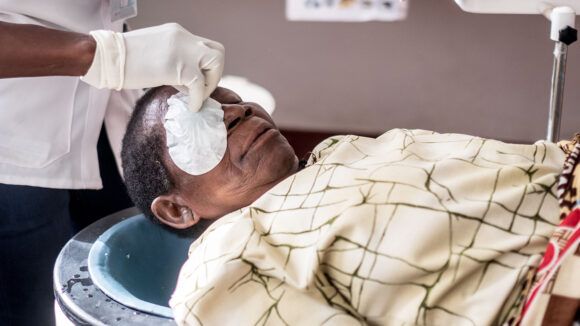Sightsavers, an international organisation that works to end avoidable blindness through its new ‘Eye health Equals’ campaign, has called on governments, organisations, donors, and communities to ensure eye health is prioritised.
In a press release made available to BONews Service by Joy Sewuese to mark this year’s world sight day (October 13), Sightsavers noted that the number of people in need of eye care in Nigeria is spiraling. In 2007, it was estimated that among people aged 40 years and over, around 1.1 million were blind, and over 403,000 were severely vision impaired.
Dr Selben Penzin, Senior Program Manager for Eye Health at Sightsavers, said, “the government and other organisations are already working hard to improve eye health, but we cannot afford to be complacent and must build on recent successes.
“For example, an eye health policy has been approved by the government, but this needs to be translated into action to ensure no Nigerian is deprived of quality eye health.
“The eye health crisis is not inevitable; we can stop it if we come together to act now. By increasing the attention, eye care is given, recognising how integral it is to every facet of life, and focusing on gender and disability inclusion, we will reduce inequality and help achieve the United Nations’ Sustainable Development Goals.”
On his part, Dr. Sunday Isiyaku, Country Director for Sightsavers Nigeria, added that the United Nations’ Sustainable Development Goals mention leaving no one behind, but there are still many people in that position.
Dr. Isiyaku said, “if we are to tackle the eye health burden in Nigeria, continued cross-sector collaboration, well-resourced interventions, funding, and commitments are needed to integrate inclusive eye health into broader health, education, employment, and development systems.
“We need all stakeholders, particularly the government and professional bodies, to rise to the challenge and meet the demand for services in the country.”
Sightsavers ‘Eye health equals’ campaign and World Sight Day activities complement the wider International Agency for the Prevention of Blindness (IAPB), call this World Sight Day to ‘love your eyes’ and focus the world’s attention on the importance of eye care.

